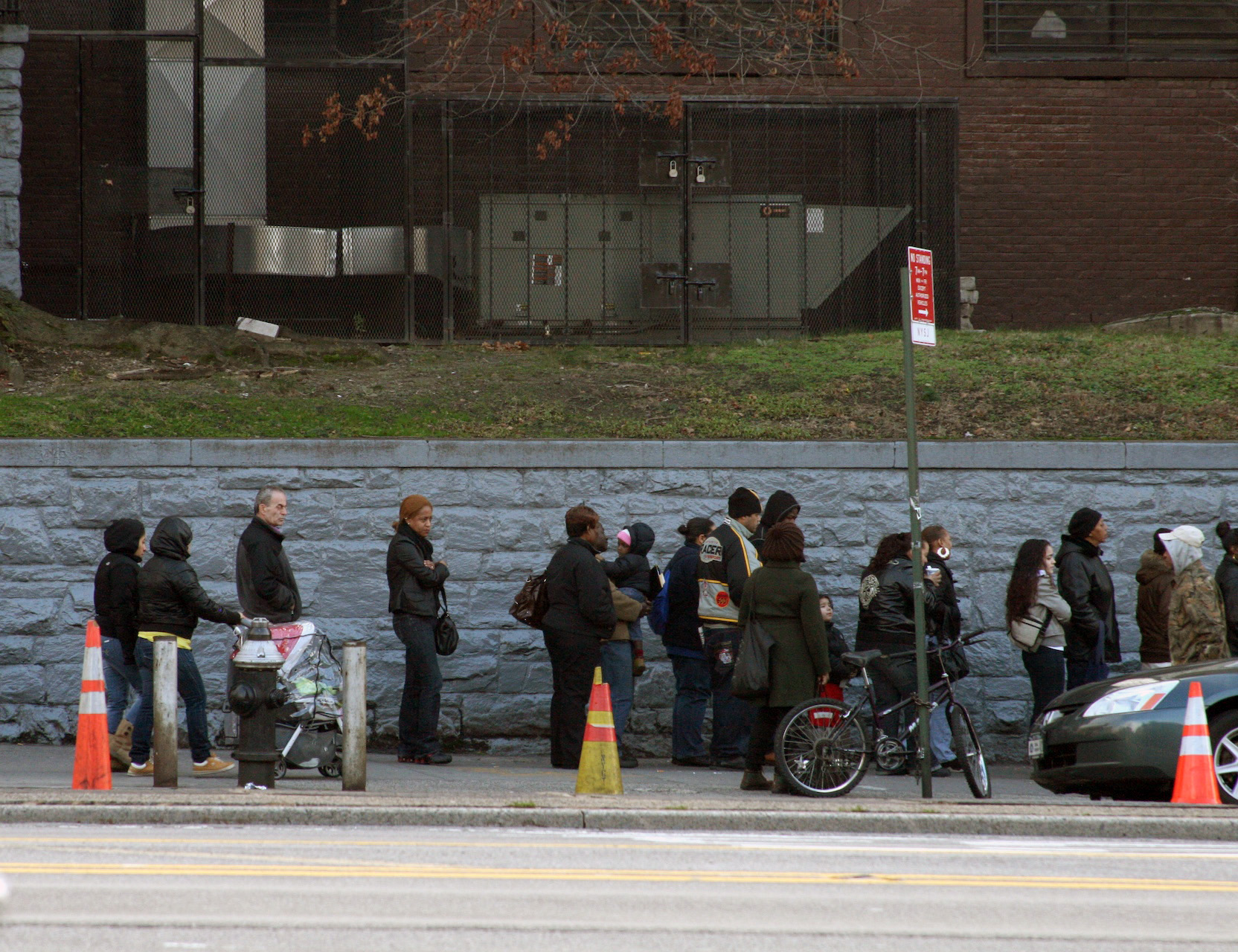
Tenants say they have no chance vs. landlords and lawyers
Low-income tenants and advocates who represent them say they face an unfair battle in the city’s housing courts because few can afford to hire lawyers to help them fight landlords trying to evict them.
At a press conference at Bronx Housing Court on Feb. 4, city comptroller Scott Stringer said it’s time for that to change.
“People are getting evicted because they don’t have counsel,” said Stringer, who had come to back Intro-214, a bill in the City Council that calls for mandatory court-appointed legal representation for tenants who can’t afford to pay. “That’s madness.”
The Bronx has the highest rate of housing court petitions and evictions of the five boroughs. In 2013, there were 10,548 evictions in the Bronx, more than a third of the city’s overall total, according to the New York City Department of Investigation.
The proposed bill would make it mandatory for the court to provide counsel in all eviction proceedings. Stringer said he is looking for money in the city’s budget to cover the provision if the bill passes.
For Kelly Stevens, who says she has lived in the area for 20 years, the courthouse on the Grand Concourse is a constant source of pressure and confusion. She says her landlord has been trying to evict her for years without good reason, but said she was too agitated to elaborate.
“I’ve been here in 2012, 2013 and 2014, all for the same foolishness,” she said before entering the courthouse to fight a charge of non-payment.
Although just ten percent of tenants in housing court are represented by an attorney, advocates say, nearly 90 percent of landlords are.
“You see a whole lot of lawyers negotiating with tenants,” Stringer said. “Tenants are already at a tremendous disadvantage.”
On the morning of the comptroller’s press conference, the line into housing court swelled and shrank continuously. At times it stretched all the way to the stairwell of the adjacent building about 30 feet away, the headquarters for the social service organization BronxWorks.
Mildred James, a tenant advocate representing Community Action for Safe Apartments, a Highbridge-based advocacy group, said the line sometimes begins forming before daybreak even though the building doesn’t open until 8:30 a.m. Legal services are offered at the court, James said, but demand far outstrips supply, adding that only the first few tenants on line are usually lucky enough to be assigned a lawyer. If tenants had adequate legal representation, she said, there would be far fewer evictions.
“If people don’t have money to make the rent, the landlord will serve them. We can’t stop that,” she said. “But we can stop them from being evicted.”
Still, for residents like Louella Hatch, who lives at Fordham and Grand Concourse and came for the press conference, the combination of the housing court system and lawyer-defended landlords are a mismatch for low-income tenants.
“There’s nothing in there but a bunch of crooks,” she said. “This is the way the system was designed to work.”

